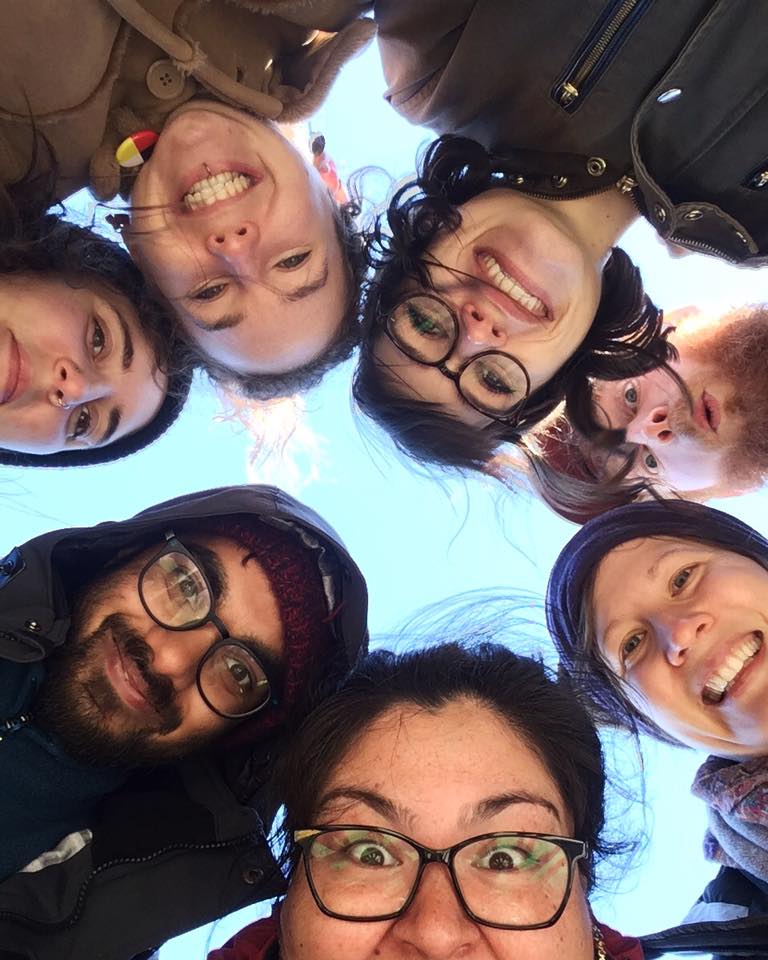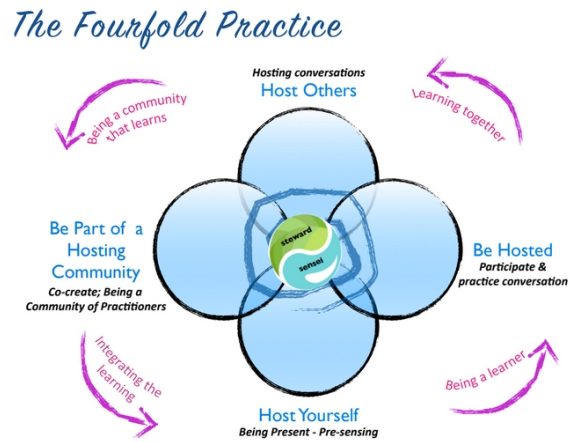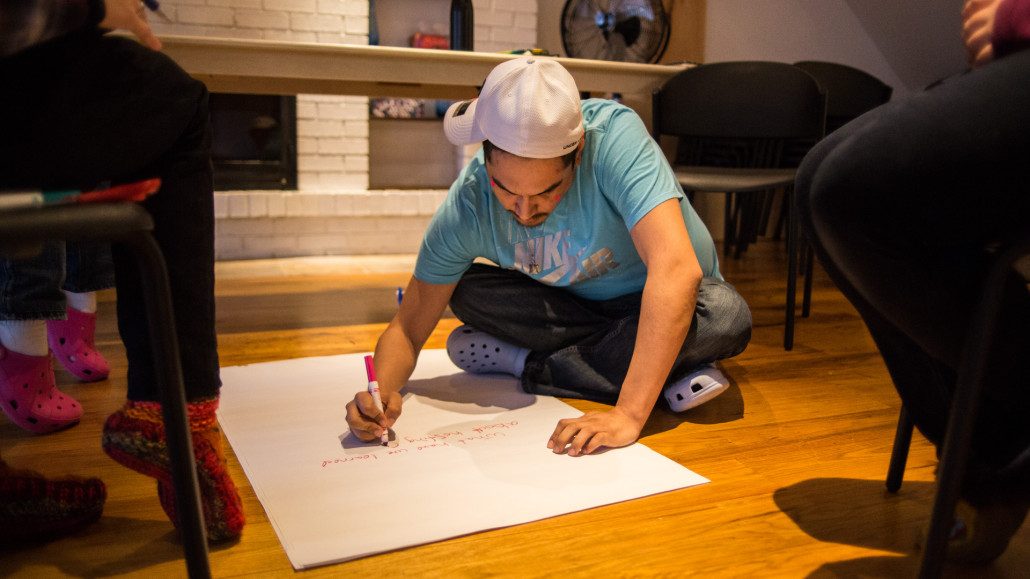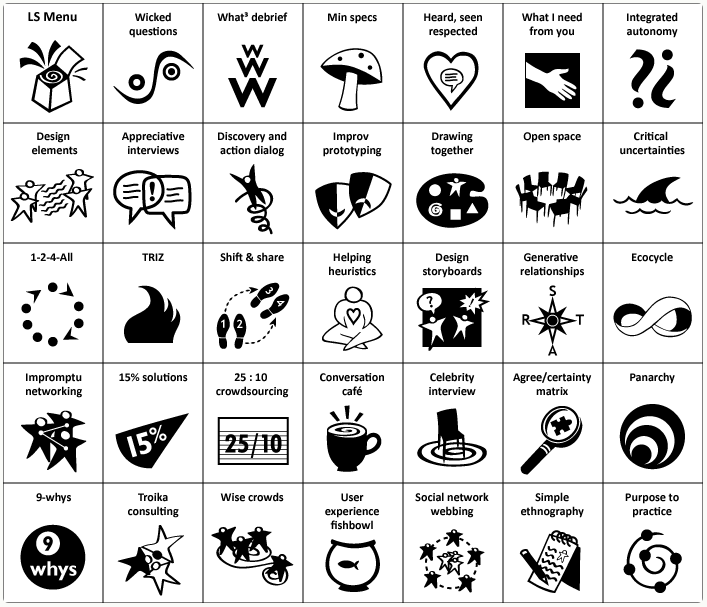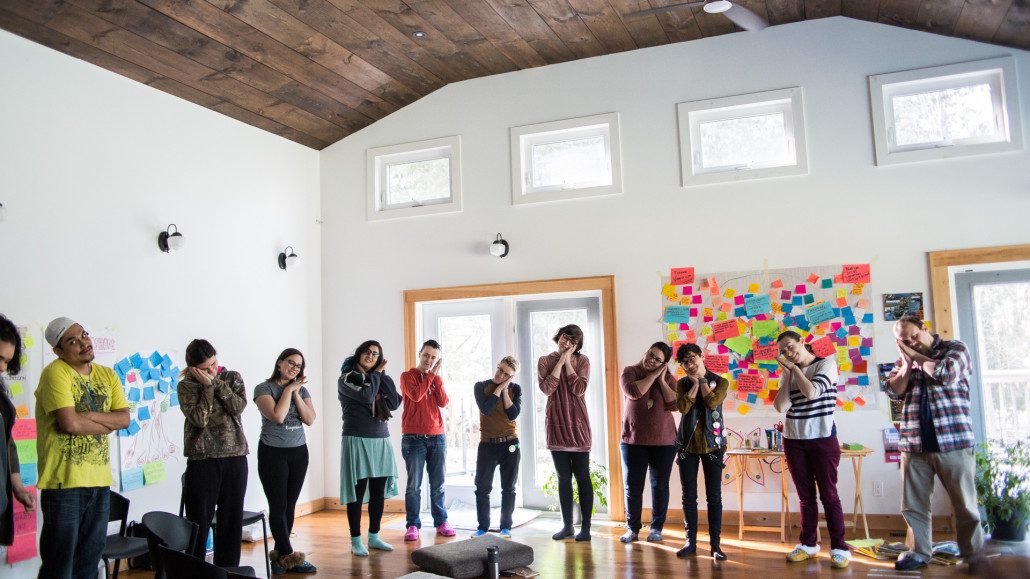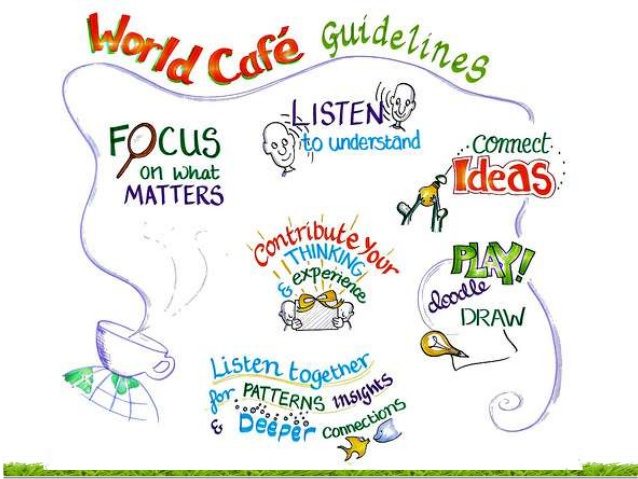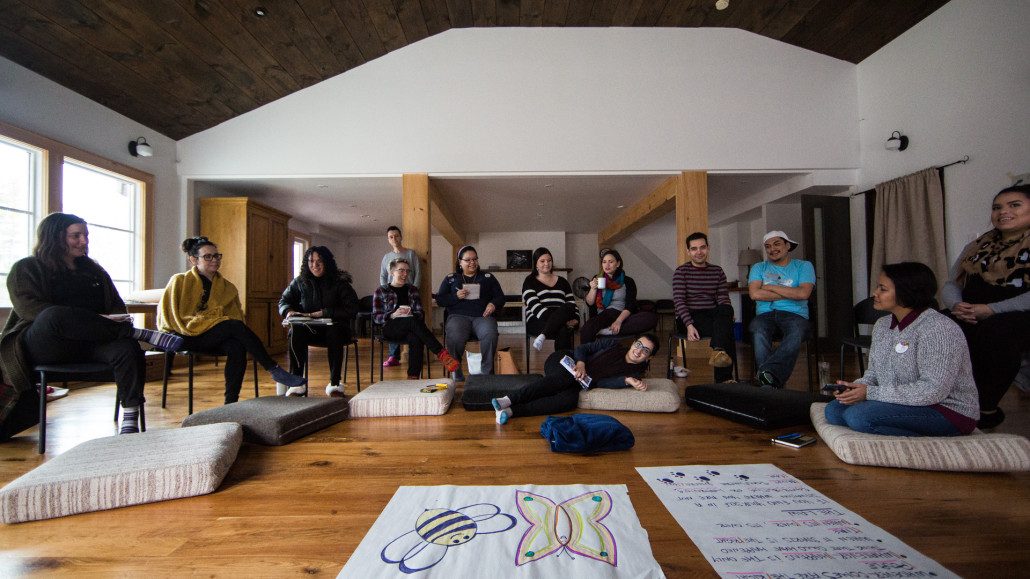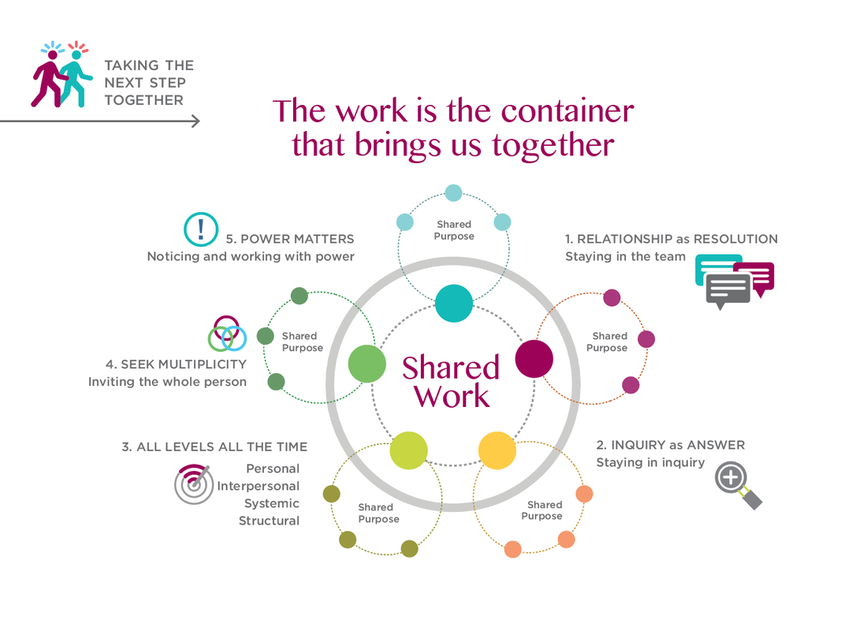Assets Based Community Development
The work of ABCD creates a virtuous circle of sustainable community action. The powerful act of identifying, linking and growing the strengths within a neighbourhood or community restores its resilience and ability to care for itself. Once discovered, the community’s newly-uncovered collective strengths can help realize an endless range of shared priorities.
The Art of Hosting is a highly effective way of harnessing the collective wisdom and self-organizing capacity of groups of any size. Based on the assumption that people give their energy and lend their resources to what matters most to them – in work as in life – the Art of Hosting blends a suite of powerful conversational processes to invite people to step in and take charge of the challenges facing them.
In the Art of Hosting world we put a lot of emphasis on the Art of Harvesting. Here is some high level summary on where we are with the practice. Basic principles around harvesting from participatory processes include:
- Participatory processes should also have participatory harvests – what is co-created is co-owned.
- Meaning making should be shared.
- Harvests need both artifacts and feedback loops.
- Harvesting can be both intentional and emergent.
Liberating Structures are easy-to-learn microstructures that enhance relational coordination and trust. They quickly foster lively participation in groups of any size, making it possible to truly include and unleash everyone. Liberating Structures are a disruptive innovation that can replace more controlling or constraining approaches.
Games for Actors & Non-Actors – Theatre of the Oppressed
Games for Actors and Non-Actors is the classic and best-selling book by the founder of Theatre of the Oppressed, Augusto Boal. It sets out the principles and practice of Boal’s revolutionary method, showing how theatre can be used to transform and liberate everyone – actors and non-actors alike!
Drawing on seven integrated design principles, the World Café methodology is a simple, effective, and flexible format for hosting large group dialogue. World Café can be modified to meet a wide variety of needs. Specifics of context, numbers, purpose, location, and other circumstances are factored into each event’s unique invitation, design, and question choice.
Open Space Technology is one way to enable all kinds of people, in any kind of organization, to create inspired meetings and events. Over the last 20+ years, it has also become clear that opening space, as an intentional leadership practice, can create inspired organizations, where ordinary people work together to create extraordinary results with regularity.
Popular education is education as a practice (or praxis) of freedom. It is an approach to education where participants engage each other and the educator as co-learners to critically reflect on the issues in their community and then take action to change them.
“It is useful for the adult educator to be able to work with all forms of oppression simultaneously, facilitating the exploration of differences.”
– Shirley Walters, Gender and Adult Education (1996)
The Shared Work model puts getting to work back at the center of our collaborations. Tuesday Ryan-Hart developed this simple model after years of working with folks who had passion and commitment for making change in their systems and organizations, but struggled to figure out how to work together over time.
Do you have something to add to this resource collection?
Please share your favourite resources with us!

